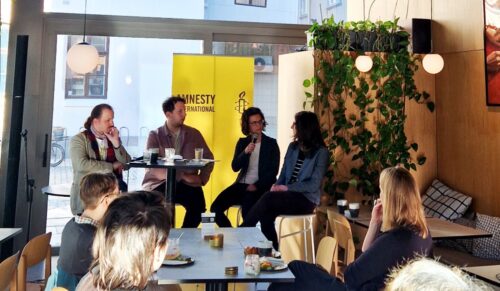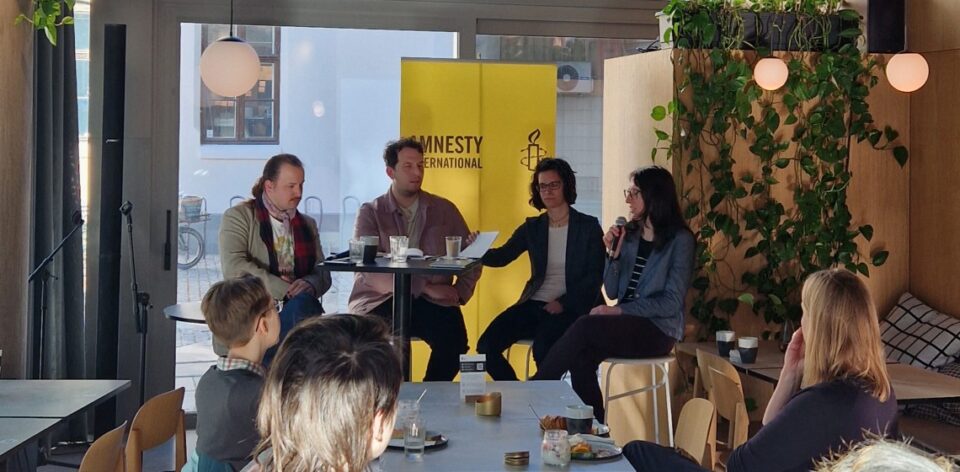April 21st is an important day for the Norwegian LGBTQ+ community. This year it was the 51st anniversary of the historic LGBTQ+ milestone that homosexuality was decriminalized in the country. To mark the occasion, Amnesty International’s Central Norway chapter hosted a roundtable discussion, with a rich breakfast and nice coffee, and as representatives of qLit we were invited as special guests of the event.
In Hungary, homosexuality was removed from the criminal code 11 years before Norway, that is, in 1961. As such, Hungary was at the forefront regarding the first steps towards the acceptance of the LGBTQ+ community worldwide (Hungary made this decision before Germany or the USA, among others).
At the moment, however, we cannot compete with any of these countries in terms of the recognition of LGBTQ+ rights. For years, Hungary has been in the spotlight for the gradual and systematic erosion of human rights, especially LGBTQ+ rights: we as Hungarian LGBTQ+ activists continue to receive weekly requests from journalists, reporters, and activists from around the world to comment on the situation of the community. In Norway, we were invited because they wanted to know what they could do for us and what they could learn from our case.

One of the questions that was raised, for example, was enquiring about what we think the first warning signs were in Hungary. Because, even with Norway and Scandinavia being among the most tolerant societies in the world, there are increasing signs that an anti-LGBTQ+ narrative is emerging in the region, which has for example led to censorship of books or even violence (remember the shooting at Oslo Pride 2022). While it was difficult for us to give advice, just as it was difficult to answer how Hungary will recover from this, we highlighted as a positive example that community cohesion and activism can in fact be strengthened despite oppression. To give a concrete example, the highly controversial children’s book Fairyland for Everyone has given Labrisz Lesbian Association incredible fame and financial stability, despite, or perhaps because of, the government’s harsh witch-hunt.
And there is also a message to the Hungarian community: we are not alone.

